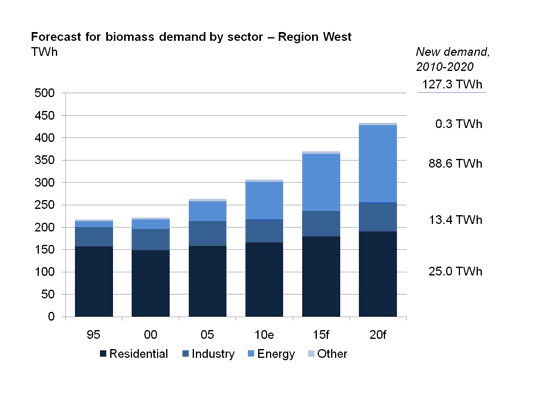
The new analysis and forecast study analyses the potential to increase regional supply for biomass from forest and other sources and the actions currently being taken to release that potential. It covers the need for imported biomass, including opportunities for biomass suppliers in other world regions and the potential implications for the traditional forest industries, service suppliers and energy sectors. It also details all lignocellulosic biomass and all end-use segments covering the EU27 countries, Norway, and Switzerland.
As the figure below (from the report) illustrates, renewable energy policy in Europe will see biomass demand grow by almost 50% between 2010 and 2020 with increased use of biomass not only in the energy sector but also in industrial and residential sectors. Biomass is currently the largest source of renewable energy in Europe and is a relatively attractive option. However, unless new sources of biomass are developed beyond current levels, Europe will face an acute shortage of biomass.

More information about the report is available online.
TAPPI
http://www.tappi.org/